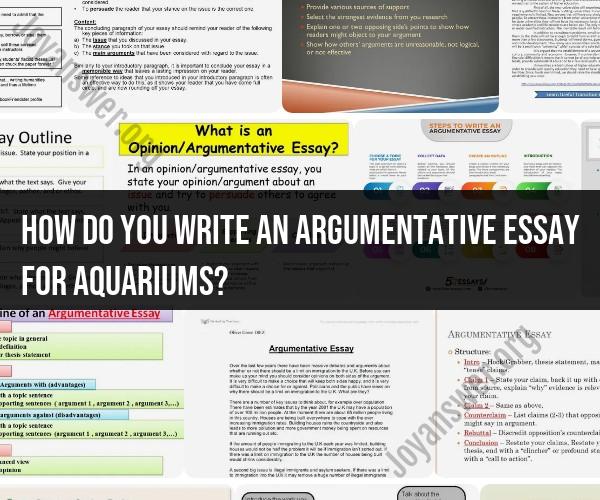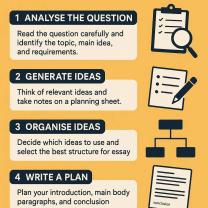How do you write an argumentative essay for aquariums?
Writing an argumentative essay on aquariums involves presenting a well-structured argument, backed by evidence and logical reasoning, to persuade your audience about a particular viewpoint related to aquariums. Here is a step-by-step guide on how to craft an argumentative essay on this topic:
1. Choose Your Position:
- Begin by selecting a clear and specific stance or argument related to aquariums. For example, you might argue in favor of the educational benefits of public aquariums, or you might argue against the captivity of marine mammals in aquariums.
2. Conduct Research:
- Gather information and evidence to support your chosen position. This may include scientific studies, expert opinions, statistics, and real-life examples. Be sure to use credible sources.
3. Create a Strong Thesis Statement:
- Develop a concise thesis statement that clearly states your argument. Your thesis should be debatable and specific. For instance, "Public aquariums play a vital role in marine conservation efforts" or "Aquariums harm marine life and should be banned."
4. Outline Your Essay:
- Create an outline that includes an introduction, body paragraphs, and a conclusion. Each section should have a clear purpose and structure.
5.
- Begin with a hook to grab your readers' attention. This could be a compelling statistic, a question, an anecdote, or a quote related to aquariums.
- Provide background information on the topic to give context to your argument.
- Present your thesis statement as the last sentence of the introduction.
6. Body Paragraphs:
- Each body paragraph should focus on a single point that supports your thesis statement.
- Start each paragraph with a clear topic sentence that states the main argument of that paragraph.
- Provide evidence and examples to support your argument. This could include data, expert opinions, case studies, or historical facts.
- Address counterarguments and opposing viewpoints, but rebut them with strong evidence to strengthen your position.
- Use transitional words and phrases to ensure smooth transitions between paragraphs and ideas.
7. Conclusion:
- Summarize your main arguments without introducing new information.
- Reiterate your thesis statement and the key points that support it.
- End with a powerful closing statement or call to action that leaves a lasting impression on your readers.
8. Revise and Proofread:
- Carefully review and edit your essay for clarity, coherence, and grammar.
- Check for logical flow and make sure your arguments are well-structured.
- Eliminate any spelling or punctuation errors.
9. Seek Feedback:
- Ask someone else to read your essay and provide feedback. Fresh perspectives can help you refine your argument.
10. Finalize Your Essay:- Format your essay according to the guidelines provided (e.g., APA, MLA).- Create a title that reflects the content and purpose of your essay.
Remember that in an argumentative essay, it's essential to present a balanced and well-supported argument. While advocating for your position, acknowledge and address opposing viewpoints to make your argument more persuasive. Additionally, use strong evidence and reasoning to support your claims throughout the essay.













